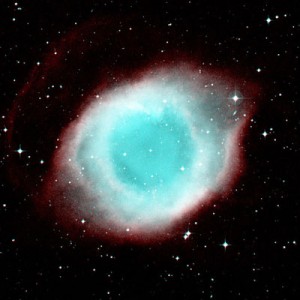 When I first learned about constellations, I couldn’t help but wonder: What were those Greeks thinking?
When I first learned about constellations, I couldn’t help but wonder: What were those Greeks thinking?
Seriously, how could they look at a random cluster of stars and see Cancer the Crab. And that big “M” really looked like Cassiopeia on a throne to them? The weirdest one of all was Ursa Major—sure, a “Big Dipper” seemed reasonable; but no matter how hard I tried, I just couldn’t see a bear. (Personally, I always thought it looked more like “The Great Question Mark in the Sky”—but that probably says more about me than about the stars themselves!)
It made more sense when I learned that these celestial beings were based on mythology. OK, so maybe the ancient Greeks weren’t so crazy after all—they were just connecting the dots in ways that told their stories. From the “billions and billions” of stars, they picked out a relatively small handful and linked them in ways that reinforced their existing beliefs.
And, in a sense, isn’t that what we all do?
We all tell stories (to others and even to ourselves) by selecting a few details and connecting them in ways that prove our point. The real question—which holds the key to your happiness or unhappiness—is: What details do you focus on, and how do you connect them? Or, to put it back into star-gazing terms:
What constellations are you creating?
When the ancient Greeks looked at the stars, they saw the good and the bad—jealous gods and immortal heroes. What do you see when you look up at the sky—or out at the world around you?
- Do you see greedy people trying to cheat you, or kind people trying to help you?
- Do you see challenges as enemies or as teachers?
- Do you see yourself struggling against constant adversity, or triumphing thanks to your indomitable spirit?
If your constellations are mostly positive—reinforcing the stories that you want to keep telling yourself—fantastic! Keep on feeding that vision!
If, however, they don’t reflect the life you want to live and the person you want to be, don’t worry—you can always create new constellations!
You can literally change your life story!
Changing your story doesn’t mean changing or denying the facts (or flat-out lying!)—it means that you see and present those facts in a different light. All you have to do is focus on different “stars” (or life events) and connect them with stories about the life you want, the world you want to live in, and the person you want to be!
For instance, if you suffered a traumatic event, you can think (and talk) about it as the moment that broke your spirit, or you can see it as a teacher that provided one of your life’s most important lessons. You might even choose to see it as a catalyst for getting back on track—for saying “Enough!” and reclaiming your life!
Or you can choose to focus on other “stars” altogether!
Remember: the stories you tell don’t just reflect the quality of your life—they determine it! So, if you find yourself telling the same story over and over (or different stories with the same underlying message), ask yourself:
- Is this story serving me?
- What story would I rather tell (and live)?
- What life experiences would I have to focus on, and how could I connect these “dots” (or “stars”) to tell a more empowering story?
It’s never too late to create new “constellations”—to rewrite your story in a way that empowers you to live a happier, healthier, more fulfilling life! Even though you can’t change your past, you can change the story you tell about it—which will certainly help create a happier future in which your star shines its brightest!
…
What “constellations” keep showing up in your sky? Are there any that you’d like to change? What new stories could you tell that would feel more personally empowering?
